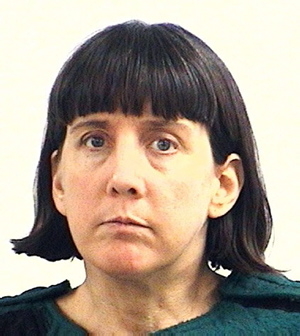
Amy Bishop's Harvard Ph.D. thesis was entitled, "The Role of Methoxatin (PQQ) in the Respiratory Burst of Phagocytes."
Being denied tenure was the motive bandied about in the wake of Professor Amy Bishop’s shooting spree in Huntsville, Alabama, last February, in which she murdered three fellow academics and wounded several others. The general feeling that higher education is somehow broken seemed to contribute to the acceptance of the refelxive explanation. Amy Wallace of Wired takes a deeper look at the tragic events in “What Made This University Professor Snap?” An excerpt:
“What makes a smart, well-educated mother of four go on a killing spree? In the more than 12 months since Bishop became the first academic in US history to be accused of gunning down fellow professors, many theories have been offered up. One is that she’s a lunatic. That suggestion came from her attorney.
Bishop’s court-appointed lawyer, Roy Miller, called her simply ‘wacko.’ Later he apologized for his word choice, but he has continued to press the point. ‘They’re going to try to show she’s sane, that she was just mean as hell,’ he tells me, referring to the prosecution, which is seeking capital murder charges against Bishop in the killings of department chair Gopi Podila and professors Maria Ragland Davis and Adriel Johnson. ‘If they seek the death penalty, which we have to assume they will, our only defense is mental.’
The Wacko theory is often accompanied by the Tenure Made Her Do It hypothesis, which posits that the grueling, years-long process of trying to win a permanent professorship—and the despair that accompanied being denied tenure by her peers—made Bishop snap. This explanation got a lot of traction right after the vicious slayings, in part because it seemed to open the door to a more general indictment of academia. Is the tenure process itself vicious? Some, like Katherine van Wormer, a blogger for Psychology Today who has herself been denied tenure, says it is. ‘I would describe the denial of tenure as an end to one’s career, to one’s livelihood,’ van Wormer wrote after the killings. ‘Being denied tenure, in effect, fired by your peers, is the ultimate rejection.’
But the Tenure Made Her Do It assertion is undermined by the calendar. Bishop learned she would not get tenure in March 2009, 11 full months before she transformed a routine faculty meeting into an execution chamber. She appealed the faculty’s decision, thus extending the process. But that appeal was denied for good in November 2009—still three months before her alleged crimes. What’s more, although tenure decisions are not public, university officials say Bishop had indicated she’d found out which colleagues had voted for and against her. Yet she shot some of the very people who had supported her. If this was tenure-related payback, it was carried out with less than surgical precision.” (Thanks Longreads.)


